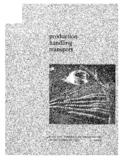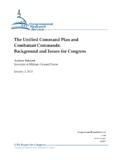Transcription of A Guide to Gender - Sensitive Research Methodology
1 FAWEF orum for African Women Educa onalistsA Guide to Gender - Sensitive Research MethodologyPrepared by Sela M. Musundi, Jane K. Onsongo and Ayo Coly for FAWE, April 2013F A W E The Forum for African Women Educationalists (FAWE) and the norwegian agency for development cooperation (Norad) A Guide to Gender - Sensitive Research MethodologyPrepared by Sela M. Musundi, Jane K. Onsongo and Ayo Coly for FAWE April 2013 Forum for African Women Educationalists (FAWE)FAWE House, Chania AvenueOff Wood Avenue, KilimaniPO Box 21394-00505 Ngong Road, Nairobi, KenyaT: +254 714 606 629 /736 387 000E-mail: 1 Preface .. 2 Acknowledgements .. 3 Gender 41. What is a Research Methodology ?
2 62. What is a Gender - Sensitive Research Methodology ?.. 63. What is the importance of Gender Sensitive Research ?.. 64. What is FAWE doing to promote Gender - Sensitive Research in sub-Saharan Africa?.. 65. Why is it important that young African women researchers develop the capacity to conduct Gender - Sensitive Research in sub-Saharan Africa?.. 76. Designing a Qualitative 87. Basic Steps in Qualitative Identifying Your Research Topic .. Developing Research The Statement of the 1 Purpose of the 1 Significance of the 1 Delimitations and 1 Theoretical 1 Reviewing Related 1 Overall Research 1 1 The Researcher s 1 Using a Gender - Sensitive Approach to Data 18 Data 1 Verifying Research Reporting and Disseminating 2 2 4 Table of Contents2 Preface In 2009, FAWE, with the financial support of the norwegian agency for development cooperation (Norad), launched an initiative aimed at strengthening Gender Research in education in Africa.
3 The initiative was in response to the recognition that Gender disparities in the education sector in Africa continue to persist despite the existing international conventions that African governments have ratified to protect women s and girls rights to education. Since the launch of this initiative four years ago, FAWE has partnered with female academics from various Research institutions across the African continent to produce policy-relevant Research on Gender and education. This Research has been published in three volumes of the FAWE Research Series. We would like to note that this Gender - Sensitive Research Guide is an extension of FAWE s Strengthening Gender Research to improve Women s and Girls Education in Africa Initiative . FAWE has developed a Gender Research methodologies Guide that will encourage rigor in Gender Research .
4 The Guide is designed specifically for young African scholars who have an interest in pursuing Research on Gender issues. It aims to help scholars to gain a better understanding of how to mainstream Gender into their Research from the initial phase of constructing Research questions and/or hypotheses to the conclusion phase when data are analysed, compiled and reported. We hope that this Guide will help young, novice scholars with an interest in Gender Research to horn their skills in qualitative Research and to ultimately pursue Gender - Sensitive many young scholars in Africa, as elsewhere around the world, Research writing is often a challenging task. This is compounded by the fact that many academic institutions in Africa do not offer a Research Writing course to help young scholars strengthen their writing skills.
5 As a result, many young scholars have a difficult time writing scholarly work and few get published in refereed journals. In this Guide , we introduce the reader to some of the Gender concepts commonly used in the field of Gender studies and provide a step-by-step description of how to design and conduct a Gender - Sensitive qualitative study. Information on how to disseminate your Research findings is also provided. Education is the most powerful tool, which you can use to change the world ~ Nelson Mandela 3 AcknowledgementsWe wish to thank Ms. Oley Dibba-Wadda, the Executive Director of the FAWE Regional Secretariat in Nairobi, Ms. Hendrina Doroba(Senior Program Coordinating Officer, FAWE) and Ms.
6 Irmin Durand (formerly of FAWE) for extending us the opportunity to participate in the development of this project. We also thank the anonymous reviewers for their comments and Prof. John W. Creswell at the University of Nebraska Lincoln for the permission he granted us to reprint some of his work in this Guide . This publication was made possible through the generous financial support of the norwegian agency for development cooperation (Norad). 4 The term sex is defined in the Dictionary of Social Sciences as the biological differences between male and female [emphasis mine], especially those directly related to reproduction and erotic pleasure (Calhoun, 2012). Gender is a socially and culturally constructed notion about the roles of women (femininity) and men (masculinity) within a society.
7 These roles are context-specific and therefore vary across cultures. Femininity refers to the forms of behavior associated with the female sex, as opposed to the biological differences that define the sexes (Calhoun, 2012). Masculinity refers to the forms of behavior associated with the male sex, as opposed to the biological differences that define the sexes (Calhoun, 2012). Gender discrimination occurs when an individual or group of people are treated unfairly or deprived of certain rights because of their Gender . This refers to women having the same opportunities in life as men, including the ability to participate in the public sphere (BRIDGE, 2000). Gender equity is the equivalence in life outcomes for women and men, recognizing their different needs and interests and requiring a redistribution of power and resources (BRIDGE, 2000).
8 Gender mainstreaming refers to the integration of Gender into every aspect of an institution s policies and activities (BRIDGE, 2000). Gender - Sensitive Research refers to Research that seeks to understand the differential life experiences of women and men in society (Leduc, 2009). Gender studies focuses on feminist Research as well as on Research that explores the construction of femininity and masculinity and other possible categories (J rviluoma, Moisala, &Vilkko, 2003). Gender Concepts1 SexGenderFeminityMasculinityGender DiscriminationGender EquityGender mainstreamingGender- Sensitive researchGender Studies 1 For a more elaborate list on Gender concepts, refer to BRIDGE (2000). 5 A Guide To Gender - Sensitive Research Methodology In the last two decades, the Forum for African Women Educationalists (FAWE) has been committed to promoting Gender equality and equity in education in sub-Saharan Africa6 A Guide To Gender - Sensitive Research Methodology 1.
9 What is a Research Methodology ?Although the term Methodology is often used synonymously with the term methods (Beetham & Demetriades, 2007), these two terms have distinct meanings. Methodology refers to the overarching approach to Research , encompassing the theoretical and philosophical ideas, focus of the study, methods to the employed, form of analysis and position of the researcher (Jones, Rodger, Ziviani& Boyd, 2012, p. 370) whereas Research methods are the actual techniques that one employs to conduct Research (Beetham & Demetriades, 2007). 2. What is a Gender - Sensitive Research Methodology ?A Gender - Sensitive Research Methodology is an approach to Research that takes into account Gender as a significant variable and pays attention to the similarities and differences between men and women s experiences and viewpoints and gives equal value to each (Leduc, 2009, p.)
10 1). 3. What is the importance of Gender Sensitive Research ?Conducting Research that pays attention to both the experiences of women and men is important in that it ensures that none of these two groups are left out, ignored or become invisible in Research . Gender Research can also provide the avenue through which inequalities based on Gender are addressed. Indeed by highlighting differences between how women and men fare, advocates can make the case for the urgent need to reduce Gender inequality (BRIDGE In Brief, 2007, p. 1). 4. What is FAWE doing to promote Gender - Sensitive Research in sub-Saharan Africa?In the last two decades, the Forum for African Women Educationalists (FAWE) has been committed to promoting Gender equality and equity in education in sub-Saharan Africa through advocacy as well as through lobbying of governments in the region.


